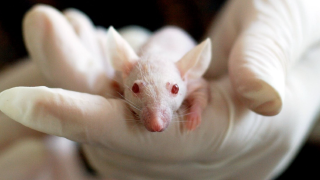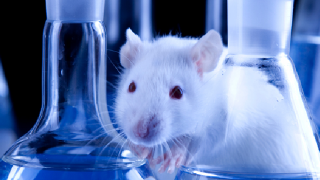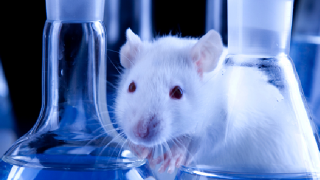Government scrutiny body says duplicate animal testing may be needed post-Brexit
We have written to Secretary of State for the Environment, Michael Gove, urging him to urgently publicise the government’s plans to ensure that no duplicate animal testing takes place in the UK after Brexit.
The UK is turning existing EU REACH chemicals regulation into national law and a report by the Regulatory Policy Committee, a body set up to independently monitor the work of government departments, highlights that there is a very real possibility of more animal suffering.
In its report about plans for the creation of a UK regulatory authority to replace the work of the European Chemicals Agency (ECHA), the Committee says there “may be a negative impact on animal welfare” in a scenario where data sharing with ECHA does not happen. It also says that firms “may be required to duplicate animal testing” in this transition phase.
Our Director of Public Affairs, Kerry Postlewhite, said: “Too many animals have already suffered and died so that companies can register their chemicals with the ECHA under REACH rules. To have to repeat those tests because there is no mechanism for sharing safety data is abhorrent. The Secretary of State has repeatedly stated that Brexit is an opportunity for the government to improve levels of animal protection. What is he doing to make one hundred per cent sure that there is no risk that cruel animal tests already carried out will have to be carried out again?”
More news on Chemicals
UK REACH
Ending animal testing for chemicals in the UK
EU REACH
Europe’s largest animal testing programme
End the trade in primates
subtitle: Thousands of monkeys are traded globally for research
The MAP Campaign
subtitle: Make Alternatives a Priority in the US
Save the dogs
subtitle: Help us stop the use of dogs in experiments
Ending toxicity testing on dogs and monkeys
subtitle: Help us end the use of dogs and monkeys in experiments
Replace Animal Tests: The UK RAT List
subtitle: 5 animal tests that should be replaced
5 animal tests that should be replaced
Replace Animal Tests: The EU RAT List
subtitle: 10 animal tests that should be replaced
10 animal tests that should be replaced
Make Their Voice Count
subtitle: Pledge to #MakeTheirVoiceCount in this administration.
Animals don’t speak our language, but that doesn’t mean they don’t have anything to say.
Global Cosmetics Campaign
subtitle: Ending cosmetics testing around the world
Making North America cruelty free
subtitle: Ending animal testing for cosmetics in North America
Poll: 72% of EU citizens want a phase-out plan for animal tests
subtitle: The use of chemical agents within animal testing
Support the HEARTS Act
subtitle: Ask your US Representative to support the HEARTS Act
The HEARTS Act will prioritize the use of humane and effective alternatives to animals in experiments funded by the National Institutes of Health.
Support the Humane Cosmetics Act
subtitle: Ask your US Representative to support the Humane Cosmetics Act.
If you live in the US you can help by contacting your US Senator and asking them to support the Humane Cosmetics Act
Help us #SendSurvivorsHome by supporting the CARE Act
subtitle: Ask your US Representative to support the CARE Act.
Over 200,000 dogs, cats, and rabbits are used in experiments each year in the United States. The Companion Animal Release from Experiments (CARE) Act will ensure that dogs, cats, and rabbits are placed in loving homes

























